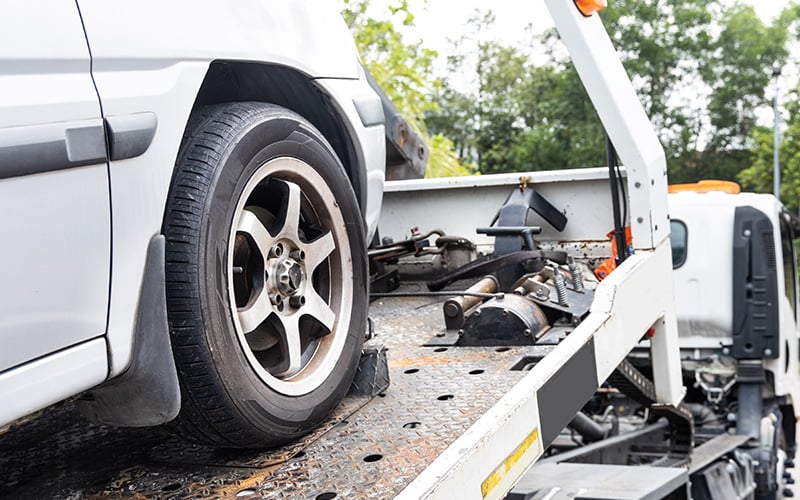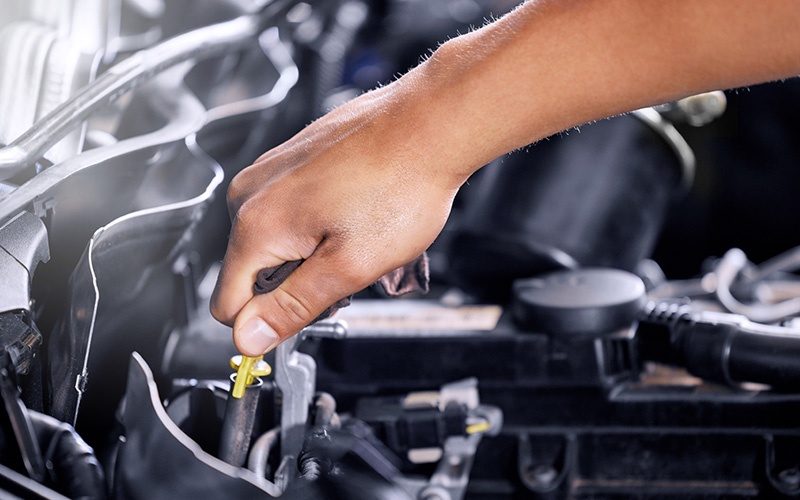Van Leasing Vs Buying a New Van - Which One to Choose?

Table of Contents
1. What’s the difference between van leasing and buying?
2. Buying a new van: the pros and cons
3. Leasing a new van: the pros and cons
Looking to buy or lease a van for your business, but can’t decide which option is right for you? You have come to the right place.
1. What’s the difference between van leasing and buying?
Simply, when you purchase a van, you gain ownership of the vehicle. With leasing, you are renting it for a set period of time. Often when buying, you are expected to pay for the van upfront. Alternatively, you can take out a loan via van finance, which you pay back monthly.
Meanwhile, van leasing offers you the flexibility of paying monthly rental payments. You are expected to return the van at the end of the agreement. If you prefer to get a new van every few years, this might be a better option for your business.
2. Buying a new van: the pros and cons
Pros of buying a new van
- You are the owner of the van
- Full manufacturer warranty if buying new
- Possibility to customise the van for your business needs
- An option to pay for the van upfront or take out a loan
- A van is a valuable asset for a business
- No mileage restrictions
- Tax benefits, you can claim 100% of the cost as capital allowances if solely used for business
- If maintained well, you can sell your van for a great price
Cons of buying a new van
- Large upfront cost
- Higher monthly payments compared to van leasing
- It will depreciate, if not maintained correctly or it has a higher-than-average mileage
- Responsibility for maintenance and repairs which may increase as the van gets older
3. Leasing a new van: the pros and cons
Pros of leasing a new van
- Fixed monthly rental payments, for easier budgeting
- Lower monthly payments compared to buying outright
- Drive a brand-new model every few years
- Full manufacturer warranty
- Maintenance and repair packages can be added
- No long-term commitment
- No need to worry about depreciation
- Tax deductions, you can reclaim the VAT on initial and monthly rental payments
Cons of leasing a new van
- If leasing vans long-term, the overall cost may be higher compared to buying one
- Mileage restrictions with the agreement
- Additional charges if the van has not been taken care of or the mileage has been exceeded
- Fewer opportunities to customise the van for your needs
- You don’t own the van at any point

4. Baseline costs
Before you decide whether to buy or lease a van, you should consider the monthly baseline costs. This is the figure of how much it costs you to run your van. Depending on if you lease or own the vehicle, you have different costs to consider:
Van Insurance
Whether you lease or own your van, you must take care of the van insurance. It’s a good idea to have a comprehensive package to protect you and the vehicle.
Van Fuel
You must include the fuel costs in your monthly budget. This is an expense that you must cover whether you lease or own your van. At Vansdirect we offer fuel cards to help cut costs and maximise savings.
Van Servicing
Depending on the agreement, some van leasing covers servicing if you choose to buy a maintenance package. Make sure to check this from your van leasing agreement. If you own the van, it’s your responsibility to keep your vehicle in a roadworthy condition.
Van Tyres
Tyres are often not included in the standard van warranty or leasing agreement. So, regardless of if you own your van or are leasing it, you are responsible for the tyres and their condition.
Van Repairs
Similar to van servicing, sometimes repairs are covered by the van agreement if you choose to buy a maintenance package. You should discuss with your lender about this. If you are the owner of the van, all repairs are your responsibility.
Van Breakdown cover
Sometimes van leasing agreements come with a maintenance package. In this case, it may include breakdown cover. As a van owner, we recommend purchasing a service plan with breakdown cover. All so you can drive with peace of mind knowing you’re looked after.
Van Road tax
Road tax is included in your lease agreement. If you are the owner of the van, road tax is your responsibility.
Additional equipment
Sometimes you may need additional equipment fitted into your van prior to getting your vehicle.
5. Other costs to consider
You should also take any hidden costs into account. These can be easily overlooked but can add up quickly. These costs include:
Depreciation
No matter how well you look after your van, if your mileage is high, so is the depreciation. This affects the resale value of your van. If you choose van leasing, then you are not exposed to depreciation as you never own the van. Plus, it doesn’t sit as an asset on your balance sheet.
Low Emission Zone (LEZ), Clean Air Zone (CAZ) and Ultra Low Emission Zone (ULEZ) charges
With the Government’s recent Road to Zero policy, drivers can expect to see more Low Emission Zones (LEZ) appear across the country. The LEZs, CAZs and ULEZs charge older polluting vehicles to improve the air quality in cities.
Downtime
When a van is not used, it costs you money. The more days your van is not used, the more it costs in lost income.
Cost of disposal
If you buy the van outright, you should think about the cost of disposal, whether you end up selling or scrapping your van. Therefore, you should be prepared for some loss in capital.
6. Summary
Whether you should choose van leasing or buying depends on your business needs and individual circumstances. You may have the financial backing to buy a van outright or leasing might be better for your current situation. We recommend looking at your long-term plans before making the decision.
For smaller or start-up companies, leasing is often a great option as it doesn’t require a large upfront payment. You can simply make the advance rental payment to get access to a van. It also helps you to manage your monthly budgets easier. Driving a new van also gives your business a good look.
However, if you have an established business and you want to own the van, buying might be a better alternative for you. It also allows you to make more customisations to the vehicle, helping achieve your business goals. This option also offers you great tax benefits and no mileage restrictions.
Need help deciding?
As each van is different, so is every business. You want an option that provides the best value for your specific needs. Our friendly team can help you decide which option is best for you.
Find the best van leasing deals
Van leasing Vs Buying FAQs
Is it more tax efficient to buy or lease a van?
When buying a van for your business, you can claim 100% of the cost back as capital allowance. Meanwhile, with van leasing, the monthly rental payments can be deducted against your profits as a business expense. Overall, both options offer good tax benefits.
Is it a good idea to lease a van?
Yes! Especially if you are a small business owner, van leasing is a great option for you. It offers the flexibility of getting a new van every couple of years, without large capital outlay.
Is it better to lease or buy a van in the UK?
It depends on your business objectives and financial capabilities. While van leasing is a fantastic way to help grow your business, buying a van also offers great benefits. If you need help to decide, our expert team can help find the right option for you.
What are the disadvantages of leasing a van?
When you lease a van, it comes with an annual mileage limit. If you exceed this limit, you can expect additional charges. You also have fewer opportunities to customise your van, as it’s not legally yours.
What happens if you damage a leased van?
While you are not the legal owner of a leased van, you should look after it like it’s your own. If you damage it beyond what is deemed acceptable wear and tear, you will receive extra charges or penalties upon return. The best way to avoid these costs is to get any damage fixed before you hand the van back. Read more about what is classified as “acceptable” wear and tear on our recent blog post.
Is it best to lease a van if self-employed?
If you don’t have the capital to buy a van outright or pay a large deposit, van leasing might be better option for you.
Related Articles
Van Leasing Wear and Tear Guidelines from Vansdirect
How Van Leasing Can Help Your Business Grow
Understanding Van Leasing And How To Pick The Perfect Mileage Limit
What To Look For In A Van Leasing Company
14 Van Leasing Myths Debunked - Find Out the Common Misconceptions
